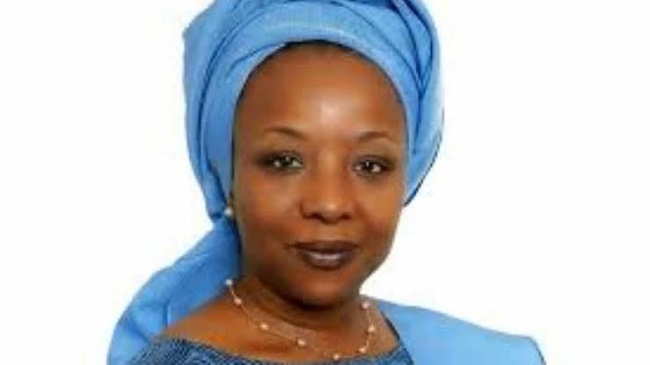The Society for Planet and Prosperity (SPP), a non-governmental organisation devoted to advancing action to enhance environmentally sustainable economic growth in Africa, is partnering with the European Climate Foundation (ECF) and the Climate Change and Development Alex-Ekwueme Federal University Ndufu-Alike (CCCD-AEFUNAI) to convene a “High-Level Dialogue on Promoting a Green and Resilient Recovery in Nigeria and the rest of West Africa”.

The event will bring together thought-leaders including policy makers, parliamentarians, diplomats, and international development partners to discuss the multi-faceted impact of Covid-19 on Nigeria and the rest of West Africa and examples of green recovery-driven policies, practices and investments and how these will positively impact on socio-economic sustainability and resilience of sub-Saharan Africa.
The event, which holds on Thursday, April 15, 2021, will focus on articulating rational, priorities and polices for enhancing green and resilient COVID-19 recovery, build back better and deliver long term sustainable development in Nigeria and other African countries.
The event will feature Chief Sharon Ikeazor, Minister of State for Environment; Sean Melbourne, Head of Climate Change & Energy, West Africa, British High Commission in Nigeria; Sam Onuigbo, former. Chairman, House of Representatives Committee on Climate Change; Esohe Odaro, Head, Investors Relations, International Financial Corporation; Dr. Fatima Denton, Director, United Nations University Institute for Natural Resources in Africa (UNU-INRA); Prof. Anthony Nyong, Director, Africa Regional Office, Global Centre on Adaptation; and Dr. Amarakoon Bandara, Senior Economist, UNDP, Nigeria. Professor Chukwumerije Okereke, Director of the Centre for Climate Change AEFUNAI and President of the Society for Planet and Prosperity, will moderate the event.
Covid-19 is an unprecedented event with socioeconomic consequences of immense proportion for Nigeria as well as other West African countries. While the number of cases and deaths linked to Covid-19 in the subregion remains below projected figures in March 2020, the pandemic has and continues to stretch regional and global health, financial and socio-economic resilience to their very limits.
The pandemic has also triggered multiple impacts on the environment, exacerbated inequalities and food security, and upended Africa’s economic growth projections. The subregion is being faced with plummeted GDP and a sudden spike in inflation with a projected fall in international remittances and FDI.
Covid-19 could result in lower emissions but also to the reversal of efforts to achieve SDGs in West Africa. The current economic challenge could lead to slow progress in the development of the technologies and innovation needed to make long-term sustainable progress in tackling climate change and moving the economies along the green development paths. Some projections indicate up to 30 million jobs could be lost and about 28 to 49 million people could be pushed into extreme poverty.
At the same time, the situation presents opportunities for governments and other stakeholders to use the Covid-19 recovery efforts to shift their economies from a brown and unequal trajectory to a much greener and equitable path. It has been argued that that tackling climate change is not a needless inconvenience that should be set aside in the pursuit of the recovery of economic growth; but rather a necessity that needs to be tackled alongside, and indeed as part of the economic recovery plan.
The concept of green recovery and building back better have gained some level of popularity in the last six months but there has been limited national and international discussion about what these concepts mean for Africa and the concrete recommendations on the kinds of system thinking, strategic planning and concrete actions required by key actors in Africa to steer the continent on the path of green resilient recovery.
The high-level dialogue is to discuss options, approaches, and concrete recommendations from the group’s project that can help facilitate green and resilient post Covid-19 recovery in African countries with a specific focus on Nigeria and the rest of West Africa. The dialogue promises to be a defining moment reviewing the opportunities and challenges facing the Africa continent and its people beyond post covid-19 era and the need to enhance ambitious mitigation and adaptation profile for a resilient continent.
It will provide a platform for exchange of views on the ideas, options and approaches that can help West African countries integrate climate change action as a central objective in the planning and implementation of their post Covid-19 economic recovery plans in support of UN Decades of Action and 2030 Agenda for Sustainable Development and Africa Unions’ Agenda 2063.
In addition, it will facilitate the exchange of knowledge and experiences among global and regional leaders, thought leaders and experts on effective policies/approaches that can promote green recovery resilient post Covid-19 era to ensure that no one or sector is left behind in the effort being made by African countries to identify investment opportunities to create green jobs and steer the continent on the path of just green transition.
By Gboyega Olorunfemi (Project Officer, Green and Resilient Post-Covid-19 Recovery, West Africa, Society for Planet and Prosperity – SPP; gaolorunfemi@gmail.com)
